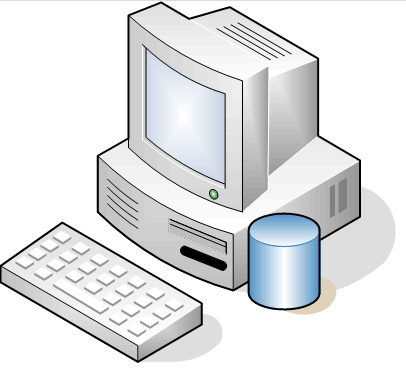
Technical Prerequisites
In the ideal case, a PC lab equipped with enough computers for all students and an Internet connection, a terminology management tool, a word processor, spreadsheet software, CD-ROM dictionaries, etc. Otherwise, a classroom with at least one PC equipped with an Internet connection, a terminology management tool, a word processor, spreadsheet software, CD-ROM dictionaries, etc.
Working Methodology
In this scenario, the teacher creates a terminology database before the beginning of the course. Each student receives a copy of the teacher’s database at the beginning of the course which will be the starting point for his/her own database. Students will be able to access their own local databases for the preparation of their specialised translation classes and for doing terminology work – e.g. entry of new entries, modification of existing ones, adding contextual information – according to the teacher's instructions. Towards the end of the course, the teacher can merge all correct entries from the students’ local termbases into his/her termbase. (see also eCoLoTrain courses on Terminology Management, exercise III).
- The local termbase prepared by the teacher is used by students as a starting point for their own termbases. This means that there will be one single terminology database at the beginning and in the end there will be as many termbases as students on the course.
- Each student (or group of students) is responsible for updating his/her own terminology database, which involves adding new entries, modifying existing entries, adding possible translations and other terminological information, etc.
- Students could also store new entries in MS Excel tables and import them later into their local termbase as a way of exercising exporting data, working with different formats, etc. (see also eCoLoTrain courses on Terminology Management, exercise III).
- During classes, teacher and students can discuss the different translation candidates contained in the particular termbase being projected, correct or incorrect translations, problems in specialised translation, language-pair specific problems, etc. According to the resources available in the classroom (Internet, CD-ROM dictionaries, paper dictionaries, etc.), students can also research and compile new terminology during the class without necessarily entering it directly into their termbase (see also eCoLoTrain course ICT 5).
- According to corrections made in class, students should update their local termbases as homework.
- Depending on the class objectives, teachers can merge students’ termbase entries into a single termbase. Since all entries and changes made by students can be tracked by their user names, teachers can also evaluate students’ terminology work.

